It says, I can use Startup event for many things, like initialization, creating multiple forms, blablabla.
However, try to create a new WPF application and add this event handler:
private void App_Startup(object sender, StartupEventArgs e)
{
Window window = new Window();
}
And after closing main window your application will hang up in the memory. Pausing executing in VS at that moment will drop ugly crash call stack window with a lot of calls somewhere far away from my source code.
Any thoughts?
P.S.: I need to instantiate all of my windows for self-learning configuration purpose once. Should I use some other place?

Let me give a better example (example above is good to reproduce the problem, seems it's hard to understand what I am actually doing). I remove StartupUri and then:
private void App_Startup(object sender, StartupEventArgs e)
{
// un-comment this line to reproduce the problem:
// Window window = new Window();
// actual implementation will be
// Window1 window1 = new Window1();
// Window2 window2 = new Window2();
// Window3 window3 = new Window3();
// Window4 window4 = new Window4();
// ...
// start main window as usually
MainWindow mainWindow = new MainWindow();
mainWindow.Show();
}
And why do I need instances of windows (window1, ..2, ..3, ...)? Because their content will be inspected to create a list of controls for which I want to save configuration. Some of these windows will never be shown to the user (to example, if he is not admin), some of them are popups, some are editors, etc. So I do not want to display them. But at any application startup the configuration has to be created and saved. And I am looking now for the place to do so.
Surprisingly, using dedicated event Startup seems have some problems with creating multiple windows but not displaying them. Question is why and how to solve it.
Testing a bit more. Try this code and explain me, why application is closed without showing any window?
private void App_Startup(object sender, StartupEventArgs e)
{
Window window = new Window();
window.Close(); // closing without opening window
MainWindow mainWindow = new MainWindow();
mainWindow.Show();
//mainWindow = new MainWindow(); // can be un-commented, for absolutely no effect
mainWindow.Show();
mainWindow.Show();
mainWindow.Show();
mainWindow.Show(); // you will not see mainWindow at all, all Show doing nothing
}
More questions. What do I do?
Something what works, but smells:
private void App_Startup(object sender, StartupEventArgs e)
{
Window window = new Window();
MainWindow mainWindow = new MainWindow();
mainWindow.ShowDialog();
Shutdown();
}
Notice, calling ShowDialog (which will make event handler waiting for that window closing) and calling Shutdown right after.
It is still not clear what is the problem in the Startup event handler to create instances of some windows. Any ideas?